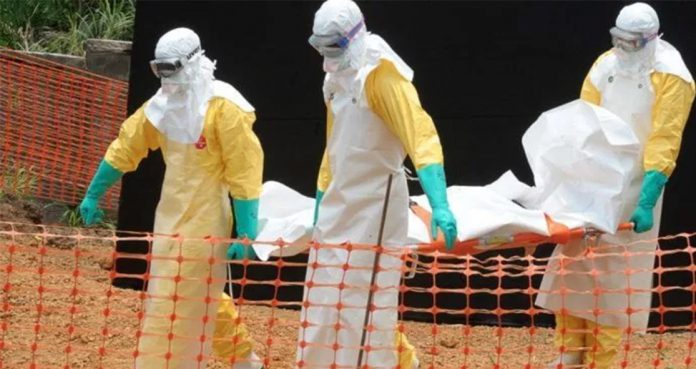So far, more than a thousand people are infected with Ebola in the Democratic Republic of the Congo (DRC). The outbreak has claimed hundreds of lives and baffled public health officials.
According to the DRC health ministry, Ebola has killed around 629 people and infected 1,009 people. By far, it is the worst Ebola outbreak in DRC’s history and the second worst in the world.
The number of Ebola cases increased precipitously in recent weeks, which has been spreading faster now.
Public health officials say they are struggling to make inroads with local communities that are not used to dealing with the virus. In recent weeks, they have been frustrated as the epicenter of the outbreak has moved to the cities of Katwa and Butembo from Beni.
In the last three weeks, more than half of the Ebola cases have emerged from Katwa and Butembo. In the past 21 days, new cases have been detected in two smaller cities called Masereke and Mandima.
Michael Ryan, the assistant director general at the World Health Organization, told The Hill in an interview Saturday, “The current epicenter of the epidemic is still very squarely in the twin cities of Butembo and Katwa. We’ve had real challenges in Butembo and Katwa and the surrounding areas.”
North Kivu Province has been ripped for decades by ethnic discord. More than a million of Kivu’s eight million residents are internally displaced. Nearly two dozen armed rebel groups have been operating in that region, while some of them have attacked medical workers.
The situation has become so dangerous that the U.S. State Department is not allowing aid workers from the CDC or the U.S. Agency for International Development to operate in that area.
Healthcare workers and responders have faced deep suspicion and strong resistance in communities that seldom interact with international aid workers.
In February, angry rebellions have attacked healthcare facilities that were dedicated to treating Ebola victims in both cities. Known as Doctors Without Borders in the United States, Medecins Sans Frontieres (MSF), pulled their aid workers out of the region post attacks. The WHO has reopened the healthcare facility in Butembo, and it is now in the process of rebuilding a facility in Katwa.
There is a lot of mistrust among the families and relatives of those infected with Ebola. They are reluctant to get a shot in the region.
The Ebola vaccine has been given to over 90,000 people in North Kivu and Ituri. It has also been given to thousands of health workers in Uganda, Rwanda and South Sudan to prevent the spread across international borders.
Healthcare workers are using a strategy known as “ring vaccination,” giving the vaccine to people who have met an Ebola victim in order to stop the spread.
So far, the virus has claimed 62 percent of deaths who were infected.
Ryan explained that people who delay seeking medical help often tend to put their families and relatives at risk of contracting the infection. He said public health officials across the globe are trying to build trust among people to ensure those infected seek medical attention right away.
The assistant director said, “The median time for detection and transport to an [Ebola treatment unit] came down in places like Mangina, places like Beni and Tchomia and Komanda. “But it remains pretty resistant in Butembo and Katwa. A lot of patients are arriving quite sick. Five, six, ten days after infection. It’s also bad for their families; it’s also bad for their communities, because they’re transmitting the disease before they are isolated.”
Ryan further mentioned, “They’re very self-sufficient, they’re very business oriented. They move and they trade, and they have a deep distrust of anyone from the outside. They are mistrustful. They see a lot of resources being assigned to Ebola, and they have other health issues that haven’t been addressed for years.”
“At the end of the day, this whole response is based on early detection of cases, exhaustive identification of contacts, contacts of contacts,” Ryan added. “We have the operational capacity to deliver all of that, but none of that is possible if the community doesn’t accept the intervention.”
For the latest stage of the response, the international community has donated more than $90 million, though much of the amount is yet to arrive. Ryan said, “It is by no means fully funded. We’re still $50 million short. It’s one thing to have pledges of $90 million. It’s another thing to have the money in the bank.” The WHO has over 700 health workers in North Kivu and Ituri provinces. American public health officials have helped vaccinate healthcare workers in safer areas across borders.






















